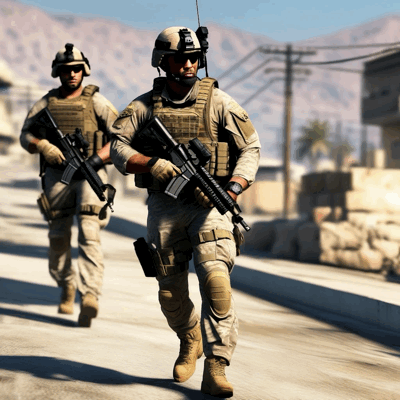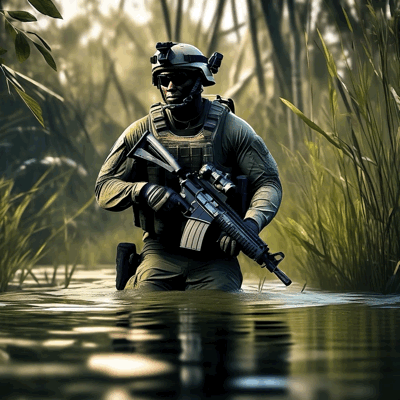Naval Base Coronado Military Defense Lawyers
Stationed at Naval Base Coronado, California? Facing a court-martial, UCMJ action, Administrative Separation Board, or other Adverse Administrative Action? Call our experienced Naval Base Coronado military defense lawyers at 1-800-921-8607 for a free consultation.
Elite Military Defense Lawyers
Our military defense lawyers are among the most experienced and hard-hitting in the world. With an unparalleled track record, we provide aggressive, strategic defense tailored to each client’s unique situation. Trust us to fight relentlessly for your rights and deliver the best possible outcome.” (Michael Waddington, Military Defense Lawyer)
Common UCMJ Offenses at Naval Base Coronado: A Closer Look
 While Naval Base Coronado is a vital hub for naval operations, it’s not immune to the legal challenges military personnel face. Several UCMJ offenses tend to be more prevalent at Coronado due to the base’s nature, the demographics of its personnel, and the unique stressors of military life.
While Naval Base Coronado is a vital hub for naval operations, it’s not immune to the legal challenges military personnel face. Several UCMJ offenses tend to be more prevalent at Coronado due to the base’s nature, the demographics of its personnel, and the unique stressors of military life.
- Article 120 UCMJ: Sexual Assault
Sexual assault is a serious crime with devastating consequences, both for the victim and the accused. Naval Base Coronado, like other military installations, has unfortunately seen its share of sexual assault cases. The UCMJ takes a strong stance against sexual assault, and those convicted face severe penalties, including imprisonment, dishonorable discharge, and sex offender registration.
- Article 86 UCMJ: Absence Without Leave (AWOL)
AWOL, or going absent without permission, is a common offense across all military branches. The stress of deployments, training exercises, and personal issues at Naval Base Coronado can sometimes lead individuals to go AWOL. The severity of the punishment for AWOL depends on the length of the absence and any aggravating factors.
- Article 92 UCMJ: Failure to Obey an Order or Regulation
The military relies on a strict chain of command and adherence to orders. Failure to obey a lawful order or regulation is a serious offense that can undermine discipline and operational effectiveness. This offense can have significant ramifications at Naval Base Coronado, where following orders is crucial for mission success.
- Article 112a UCMJ: Wrongful Use, Possession, or Distribution of Controlled Substances
Drug offenses are a concern in any community, including Naval Base Coronado. The UCMJ prohibits the use, possession, or distribution of controlled substances. With the base’s proximity to San Diego, a major city with known drug issues, service members may be exposed to these substances.
- Article 121 UCMJ: Larceny and Wrongful Appropriation
Theft and related offenses like wrongful appropriation are also common UCMJ violations. These can range from minor thefts to more significant instances of fraud or embezzlement. Financial stress, personal problems, or a lack of impulse control can contribute to these offenses.
- Article 134 UCMJ: General Article
The General Article, also known as the “catch-all” article, covers many offenses not specifically listed elsewhere in the UCMJ. These can include adultery, drunk and disorderly conduct, fraud, and other actions that are prejudicial to good order and discipline or bring discredit upon the armed forces.
Additional Considerations
- The Impact of Deployments: Deployments’ stress and isolation can exacerbate existing problems and lead to increased incidents of UCMJ offenses.
- The “Zero Tolerance” Policy: The military has a zero-tolerance policy for sexual assault and other serious crimes, which means that even first-time offenders can face severe consequences.
- The Importance of Prevention: Naval Base Coronado takes proactive measures to prevent UCMJ offenses through training, counseling, and support services for its personnel.
If you or someone you know is facing UCMJ charges at Naval Base Coronado, seeking legal counsel is crucial. A skilled military defense lawyer can provide guidance, protect your rights, and help you navigate the complexities of the military justice system.
The Uniform Code of Military Justice (UCMJ): The Cornerstone of Military Law
 The Uniform Code of Military Justice (UCMJ) is a comprehensive federal law that serves as the legal framework for the United States Armed Forces. Enacted by Congress in 1950, the UCMJ outlines the rules, regulations, and procedures that govern military conduct, discipline, and legal proceedings.
The Uniform Code of Military Justice (UCMJ) is a comprehensive federal law that serves as the legal framework for the United States Armed Forces. Enacted by Congress in 1950, the UCMJ outlines the rules, regulations, and procedures that govern military conduct, discipline, and legal proceedings.
Key Aspects of the UCMJ:
- Jurisdiction: When activated for federal duty, the UCMJ applies to all active duty service members, reservists, and National Guard members. It can also extend to certain civilians working with or for the military in specific circumstances.
- Unique Offenses: The UCMJ includes offenses specific to military life, such as desertion, absence without leave (AWOL), disrespect towards superiors, fraternization, and conduct unbecoming an officer.
- Standard Criminal Offenses: In addition to military-specific offenses, the UCMJ also covers standard criminal offenses like theft, assault, drug offenses, and sexual assault, but with modifications to address the military context.
- Non-Judicial Punishment (NJP): Commanders can impose NJP for minor offenses, also known as Article 15. This can involve reprimands, loss of privileges, reduction in rank, or restriction to base.
- Court-Martial: Service members may face a court-martial, a military trial for more serious offenses. There are three levels of court-martial: summary, special, and general, each with varying levels of severity.
- Procedures and Protections: The UCMJ outlines specific investigations, charges, and trial procedures. It also gives service members certain rights, such as the right to legal counsel, the right to remain silent, and a fair trial.
The UCMJ and Naval Base Coronado
Like any other military installation, Naval Base Coronado operates under the UCMJ. Military personnel stationed at Coronado are expected to adhere to the UCMJ’s regulations and are subject to its disciplinary actions. Offenses committed on or off base can fall under UCMJ jurisdiction, and any alleged violation can lead to investigation and potential legal proceedings.
Why Understanding the UCMJ is Crucial
Understanding the UCMJ is essential for all military personnel at Naval Base Coronado. It’s crucial to know:
- Your Rights: As a service member, you have certain rights and protections under the UCMJ.
- Potential Consequences: Violations of the UCMJ can lead to significant consequences, affecting your career, rank, and even your freedom.
- Legal Assistance: If you face UCMJ charges, seeking legal counsel is vital to protect your rights and navigate the complex legal process.
In summary, the UCMJ is the bedrock of military law, governing the conduct and discipline of service members. Understanding the UCMJ is key to a successful and lawful military career at Naval Base Coronado.
Why You Need a Naval Base Coronado Military Defense Lawyer: Protecting Your Rights, Career, and Future
Facing UCMJ charges or a court-martial at Naval Base Coronado can be overwhelming and intimidating. The stakes are high, with your career, reputation, and freedom potentially on the line. Having a skilled military defense lawyer by your side is not just a luxury; it’s a necessity. Here’s why:
- In-Depth Knowledge of Military Law:
- Military law is a specialized field with unique rules, procedures, and complexities.
- A Naval Base Coronado military defense lawyer understands the intricacies of the UCMJ, court-martial procedures, and the nuances of military justice.
- They can leverage their expertise to build a strong defense strategy tailored to your case.
- Protecting Your Rights Under the UCMJ and Constitution:
- The UCMJ provides service members with certain rights, such as the right to legal counsel, the right to remain silent, and the right to a fair trial.
- A military defense lawyer will uphold these rights throughout the legal process, preventing violations or abuses.
- Thorough Investigation and Evidence Gathering:
- A skilled defense lawyer will meticulously investigate your case, gathering evidence, interviewing witnesses, and analyzing all relevant information.
- They may uncover exculpatory evidence, inconsistencies in the prosecution’s case, or procedural errors that could be used to your advantage.
- Negotiating with the Prosecution:
- A military defense lawyer can negotiate with the prosecution, potentially leading to reduced charges, a plea bargain, or even dismissal of the case.
- Their experience in negotiating with military prosecutors can significantly impact the outcome of your case.
- Aggressive Representation at Court-Martial:
- If your case proceeds to trial, your defense lawyer will provide zealous representation, presenting evidence, cross-examining witnesses, and advocating for your innocence or a reduced sentence.
- Their courtroom experience and understanding of military court procedures can be critical in achieving a favorable outcome.
- Mitigating the Consequences:
- Even if convicted, a skilled defense lawyer can work to minimize the negative impact on your career, rank, and benefits.
- They can advocate for alternative sentencing options, such as rehabilitation programs or reduced penalties, to help you move forward with your life.
- Emotional Support and Guidance:
- Facing UCMJ charges can be emotionally taxing. A compassionate military defense lawyer can provide support, guidance, and reassurance throughout the challenging legal process.
- They can help you understand your options, make informed decisions, and cope with the stress of the situation.
- Local Expertise:
- A Naval Base Coronado military defense lawyer will have in-depth knowledge of the base’s unique environment, culture, and legal landscape.
- They may be familiar with specific commanders, prosecutors, and judges, which can benefit your case.
In conclusion, a Naval Base Coronado military defense lawyer is not just a legal advocate but a crucial ally. They provide expertise, protection, and support during difficult times, safeguarding your rights, career, and future.
Choosing the Right Naval Base Coronado Military Defense Lawyer: A Comprehensive Guide
Selecting the right military defense lawyer is crucial for navigating the complex and high-stakes world of military justice. Your choice can significantly impact the outcome of your case and your future. Here’s a breakdown of the key factors to consider when choosing a Naval Base Coronado military defense lawyer:
- Experience and Expertise:
- Military Law Focus: Ensure the lawyer specializes in military law and has a proven track record of defending service members facing UCMJ charges.
- Naval Base Coronado Experience: Prior experience with cases at Naval Base Coronado is a plus, as the lawyer will be familiar with the local legal landscape and procedures.
- Court-Martial Experience: Look for a lawyer who has successfully handled court-martial cases, which indicates their ability to navigate complex military trials.
- Specific Offense Expertise: If facing a particular charge (e.g., Article 120), inquire about the lawyer’s experience with that offense.
- Reputation and Track Record:
- Success Rate: Ask about the lawyer’s success rate in defending military clients and obtaining favorable outcomes.
- Client Testimonials: Read online reviews and testimonials from past clients to gauge their satisfaction with the lawyer’s services.
- Peer Recognition: Check if the lawyer has received any awards or recognition from legal organizations for their work in military law.
- Communication and Accessibility:
- Clear Communication: The lawyer should be able to explain complex legal concepts in a way you can understand and keep you informed throughout the process.
- Responsiveness: Choose a lawyer who is responsive to your calls and emails and promptly addresses your concerns.
- Personalized Attention: Ensure the lawyer will give your case the personalized attention it deserves, not just treat you as another case number.
- Compassion and Understanding:
- Empathy: Facing UCMJ charges can be emotionally draining. Choose a lawyer who demonstrates empathy and understands the stress you’re under.
- Supportive Approach: The lawyer should be supportive and reassuring, offering guidance and encouragement throughout the legal process.
- Client-Centered Focus: The lawyer should prioritize your best interests and goals, tailoring their defense strategy to your individual needs.
- Cost and Fee Structure:
- Transparency: Discuss fees upfront and ensure the lawyer provides a clear breakdown of their fee structure, including any additional costs.
- Payment Options: Inquire about flexible payment options or payment plans if needed.
- Value for Money: While cost is a factor, prioritize experience and expertise over the cheapest option. A skilled lawyer can save you money in the long run by achieving a better outcome.
- Additional Considerations:
- Comfort Level: Choose a lawyer with whom you feel comfortable and can trust to represent you effectively.
- Referrals: Ask trusted colleagues, friends, or family members for referrals to reputable military defense lawyers.
- Free Consultations: Many lawyers offer free initial consultations, allowing you to meet them and discuss your case before deciding.
By carefully considering these factors, you can choose a Naval Base Coronado military defense lawyer who is the right fit for your unique situation and will fight tirelessly to protect your rights, career, and future.
The Court-Martial Process at Naval Base Coronado: A Step-by-Step Guide
Facing a court-martial at Naval Base Coronado is a serious matter. Understanding the process is crucial for protecting your rights and preparing a strong defense. Here’s a comprehensive look at the steps involved:
-
Preferral of Charges:
- This is the formal initiation of the court-martial process.
- A commanding officer reviews the evidence and decides whether to formally charge the accused with a UCMJ violation.
- The charges are typically outlined in a “Charge Sheet.”
-
Article 32 Hearing:
- This preliminary hearing is similar to a grand jury proceeding in civilian court.
- An investigating officer (IO) is a neutral party who examines the evidence, interviews witnesses, and determines whether there is probable cause to believe the accused committed the offense.
- The accused has the right to legal representation during the Article 32 hearing and can present evidence and witnesses on their behalf.
-
Referral to Trial:
- If the IO finds probable cause, the charges are referred to the convening authority (typically a high-ranking officer) who decides whether to proceed to trial.
- The convening authority has the discretion to dismiss the charges, refer them to a lower level of court martial, or send them to a general court martial.
-
Arraignment:
- The accused is formally notified of the charges against them and enters a guilty or not guilty plea.
- If the accused pleads guilty, a sentencing hearing is scheduled.
- If the accused pleads not guilty, the case proceeds to trial.
-
Trial by Court-Martial:
- Court-martial trials can be conducted by a military judge alone or by a panel of military members (jury).
- The prosecution and defense present evidence, call witnesses, and make arguments.
- The accused has the right to testify on their behalf but is not required to do so.
-
Findings and Sentencing:
- The military judge or panel deliberates and reaches a verdict of guilty or not guilty on each charge.
- A sentencing hearing is held to determine the appropriate punishment if the accused is found guilty.
- Possible sentences include confinement, reduction in rank, forfeiture of pay and allowances, and punitive discharge.
-
Appeals:
- The accused can appeal a conviction or sentence to the Navy-Marine Corps Court of Criminal Appeals.
- In some cases, further appeals may be possible to the Court of Appeals for the Armed Forces or even the United States Supreme Court.
Unique Considerations at Naval Base Coronado:
- Jurisdiction: The Navy Region Southwest (NRSW) has jurisdiction over court-martials at Naval Base Coronado.
- Convening Authorities: The convening authorities for courts-martial at Coronado are typically high-ranking officers within the NRSW.
- Legal Resources: Naval Base Coronado has a legal assistance office that can provide guidance and support to service members facing legal issues.
If you are facing a court-martial at Naval Base Coronado, seeking experienced legal counsel is crucial as soon as possible. A knowledgeable military defense lawyer can guide you through the process, protect your rights, and fight for the best possible outcome in your case.
Fictional fact patterns involving serious UCMJ crimes that could occur around Naval Base Coronado, along with the relevant articles and potential defense strategies:
Fact Pattern 1:
Exhausted from Hell Week, a Navy SEAL trainee falls asleep on watch duty at the beach in Coronado. A small boat approaches undetected.
- Article 92 (Dereliction of Duty): Naval Base Coronado Military Defense Lawyers could argue extreme fatigue as a mitigating factor, or challenge the adequacy of training and supervision.
Fact Pattern 2:
Two sailors fight at McP’s Irish Pub in Coronado after a heated argument about a football game. One sailor suffers a serious head injury.
- Article 128 (Assault): Defense might claim self-defense, mutual combat, or lack of intent to cause serious harm.
Fact Pattern 3:
Under financial stress, a Navy officer starts selling classified information about upcoming SEAL deployments to a foreign agent they met at the Hotel del Coronado.
- Article 106a (Espionage): Defense is incredibly difficult in espionage cases. Options might include arguing entrapment or challenging the information’s classification level.
Fact Pattern 4:
A group of sailors, after a night of drinking at the Tavern in Coronado, steal a military vehicle from Naval Base Coronado and go for a joyride, causing significant damage.
- Article 121 (Larceny) and Article 108 (Military Property Destruction): Naval Base Coronado Military Defense Lawyers could emphasize the influence of alcohol and lack of premeditation, potentially seeking reduced charges or non-judicial punishment.
Fact Pattern 5:
A Navy doctor at Naval Medical Center San Diego (located on Naval Base Coronado) is accused of sexual misconduct with a patient.
- Article 120 (Sexual Assault): Naval Base Coronado Military Defense Lawyers would focus on challenging the credibility of the accuser, emphasizing the doctor’s professional reputation, and questioning any inconsistencies in the evidence.
Fact Pattern 6:
A SEAL Team member, struggling with PTSD after a deployment, threatens a superior officer with a weapon during a training exercise on Naval Amphibious Base Coronado.
- Article 90 (Assaulting or Willfully Disobeying a Superior Commissioned Officer): Naval Base Coronado Military Defense Lawyers could argue diminished capacity due to mental health issues, seeking treatment and rehabilitation instead of punitive measures.
Fact Pattern 7:
A sailor, addicted to opioids, starts stealing medication from the Naval Medical Center San Diego pharmacy to support their habit.
- Article 121 (Larceny): Naval Base Coronado Military Defense Lawyers could emphasize the sailor’s addiction as a mitigating factor, advocating for treatment and rehabilitation programs over incarceration.
Fact Pattern 8:
Two junior sailors engage in a consensual sexual relationship, but one of them later claims it was non-consensual due to the power dynamic inherent in their ranks.
- Article 120 (Sexual Assault): Naval Base Coronado Military Defense Lawyers would focus on proving consent and highlighting the prior consensual nature of the relationship, challenging the claim of coercion due to rank.
Fact Pattern 9:
A Navy SEAL is accused of using excessive force during a hostage rescue mission in a foreign country, resulting in the death of a civilian.
- Article 118 (Murder): Naval Base Coronado Military Defense Lawyers would likely argue that the force used was necessary and proportional to the threat, emphasizing the high-stakes nature of the mission and the potential for collateral damage.
Fact Pattern 10:
A sailor stationed at Naval Base Coronado is caught smuggling drugs onto the base for distribution among fellow service members.
- Article 112a (Wrongful Use, Possession, etc., of Controlled Substances): Naval Base Coronado Military Defense Lawyers could investigate potential entrapment scenarios, challenge the legality of the search and seizure, or argue for leniency based on cooperation with authorities.
How Naval Base Coronado Military Lawyers Can Help:
- In-depth knowledge of UCMJ and local military court procedures
- Experience in defending service members at Naval Base Coronado
- Understanding of the unique pressures and challenges faced by military personnel
- Ability to negotiate with prosecutors, commanders, and investigators
- Access to resources and experts to build a strong defense
- Commitment to protecting the rights and careers of service members
Remember, each case is unique, and the specific defense strategies will vary depending on the circumstances. It’s crucial to consult with experienced Naval Base Coronado Military Defense Lawyers as soon as possible to protect your rights and ensure the best possible outcome.


